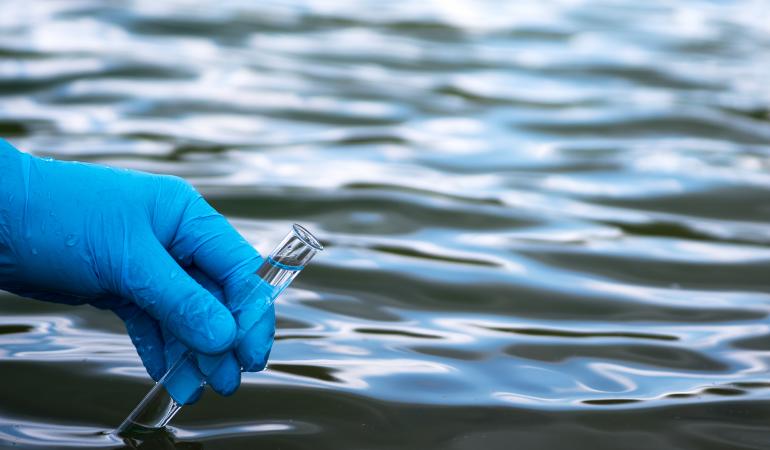
Drug waste contains substances that are harmful to the quality of drinking water. Because this waste is dumped illegally, these substances can end up in sources of drinking water. RIVM therefore recommends that these substances be measured by default in the water supply chain, especially when it comes to the production of drinking water. In addition, it is essential that drinking water companies and water boards should be notified more quickly whenever drug waste is detected.
200 illegal drug waste disposals discovered each year
In the Netherlands, many illegal drugs, such as amphetamines and XTC, are manufactured in illegal laboratories. The drug waste is disposed of in nature or in the streets in barrels or is even occasionally dumped into the sewers. Every year, the police in the Netherlands uncover around 200 illegal discharges of drug waste. This is most common in the south and east of the country.
In roughly 20% of cases, drug waste is disposed of in close proximity to areas where groundwater is extracted for the production of drinking water.
Drug waste full of hazardous substances
Drug waste is a mixture of hazardous substances, many of which are harmful to human health. High concentrations of these substances are occasionally detected in surface water or treated sewage water. Measurement of these harmful substances is not standard procedure for Dutch water.
Measuring water for drug waste substances
RIVM recommends taking measurements of these substances at more links in the water supply chain, such as in treated sewage water, groundwater, surface water and in the production of drinking water. This will allow for a more accurate assessment of how the substances spread. It will also reveal whether humans are exposed to these substances through drinking water and what harmful consequences this may have.
Furthermore, RIVM recommends determining which concentrations of these substances in drinking water are known to be safe (health-based threshold values).
More rapid information exchange to limit harm
The police and fire brigade are often the first to attend the dumped drug waste. It is vital that these services communicate effectively with drinking water companies and water boards. If these parties are able to connect with one another more rapidly and effectively, this may limit the damage caused by illegal disposal of drug waste.
RIVM recommends the development of a protocol that sets out clearly who is able to take measures at that specific time and which measures those are.